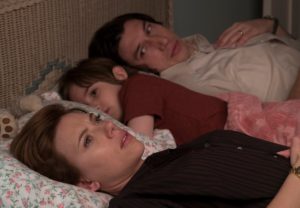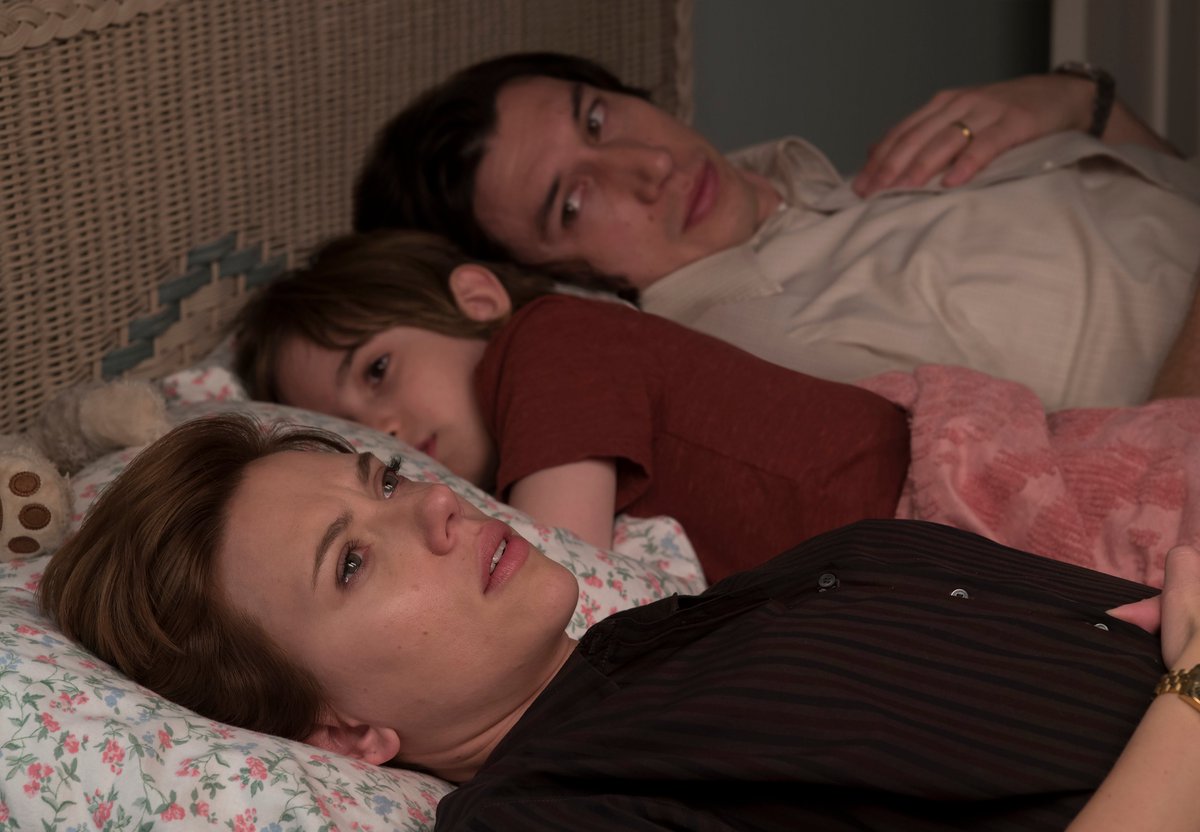Movie Info
Movie Info
- Run Time
- 2 hours and 16 minutes
- Rating
- R
VP Content Ratings
- Violence
- 0/10
- Language
- 2/10
- Sex & Nudity
- 1/10
- Star Rating
Relevant Quotes
They said to him, “Why then did Moses command us to give a certificate of dismissal and to divorce her?” He said to them, “It was because you were so hard-hearted that Moses allowed you to divorce your wives, but from the beginning it was not so. And I say to you, whoever divorces his wife, except for unchastity, and marries another commits adultery.”
So when you are offering your gift at the altar, if you remember that your brother or sister[a] has something against you, leave your gift there before the altar and go; first be reconciled to your brother or sister, and then come and offer your gift.

As a child who witnessed the break-up of my parents’ marriage, I found some of the film’s scenes painful to watch. Based on director-writer Noah Baumbach’s own divorce, it rings true, and the truth can really hurt. Both his and her sides are well presented, so if for a while we are tempted to side with the husband or wife, we are soon drawn to the other as well. And Baumbach the writer is insightful enough to see and present the feminist argument that the wife in our culture is too often thrust into the shadow of her husband, even when they are equally talented.
Charlie (Adam Driver) grew up in Brooklyn, and Nicole (Scarlett Johansson) is a native of Los Angeles. She was known mainly for a movie in which she briefly took her clothes off, but during their time in New York she became an acclaimed actress in the small theater company directed by Charlie. He is admired as a creative director of Avant Garde plays, his current one being optioned for a Broadway opening. But it will be without Nicole. She has accepted an offer to star in a new L.A. based series that might be picked up by a TV network.
Nicole has decided not only to move west with their 8-year-old son Henry (Azhy Robertson), but to secure a divorce. The two think they can separate amicably, but their session with a mediator is a failure. Once the lawyers enter the picture, their naiveté is shattered, and so are their bank accounts. When we see how divorce lawyers (wonderfully played by played by Laura Dern, Ray Liotta, and Alan Alda) add fuel to the fires of grievances, as well as HUGE costs, we might well join with Shakespeare in yelling, “The first thing we do, let’s kill all the lawyers.”
Forced to fly back and forth between L.A. and New York, Charlie is at the end of his wits, his future clouded by the extravagant demands pushed by the lawyers—even his newly announced MacArthur Genius Grant, which he is counting on to finance his play, is at risk. Complicating matters is his relationship with Nicole’s mother and sister, Sandra (Julie Hagerty) and Cassie (Merritt Wever), both of whom love Charlie and see no problem in keeping their relationship with him separate from Nicole. One of the many funny scenes in the film is in the mother’s kitchen where the three women are discussing who should serve Charlie with the divorce papers contained in the manila envelope lying on the counter. It is legally necessary, but none want the nasty chore. Cassie winds up as the server, but when Charlie arrives, it is like Cassie is playing verbal dodge ball as she continually puts off the chore.
In contrast is the lengthy meltdown between Charlie and Nicole, so real that one can almost feel the heat from their blazing accusations and recriminations. The irony is that they had started off still partially in love. The film begins with the two making a list, at the instigation of the mediator, of the things that had first led them to love each other. For both it is a long list, but all this is forgotten during their verbal sparring, and we come to better understand Nicole’s dissatisfaction with their marriage. First, Charlie had cheated on her, but more serious, that she had been diminished as a person and an artist, lost in his shadow; and in his self-centeredness he had never really listened to her desires to move back to the west coast, he always insisting “We are a New York family.” This was she a premise she had never accepted, his not paying attention to her attempts to talk about moving back to L.A. leading later to her sorrowful remark ”I never really came alive for myself; I was only feeding his aliveness.”
In addition to this incredible scene are the two sequences in which each sing a Stephen Sondheim song. At a party, Nicole is joined by her mother and sister in singing “You Could Drive a Person Crazy” while Charlie drops by a piano bar after work and sings “Being Alive.” There is also a funny, and creepiest, scene is when a court-appointed (yes, despite the assurance of the lawyers that the case would not go to court, it does) social worker visits Charlie and Henry in his newly acquired digs to evaluate their relationship. The woman is so tight-lipped that she scarcely says a word as she sits at the supper table observing the father and son interact over the meal she had declined, staying on far longer than she should have.
A film showing that good intentions are easily overcome when entrusted to a legal system that is built on adversarial principles (and cynics would say, on enriching lawyers), it runs counter to the old Hollywood dream factory that churned out those “and they lived happily ever after” flicks.
No question on this review .

